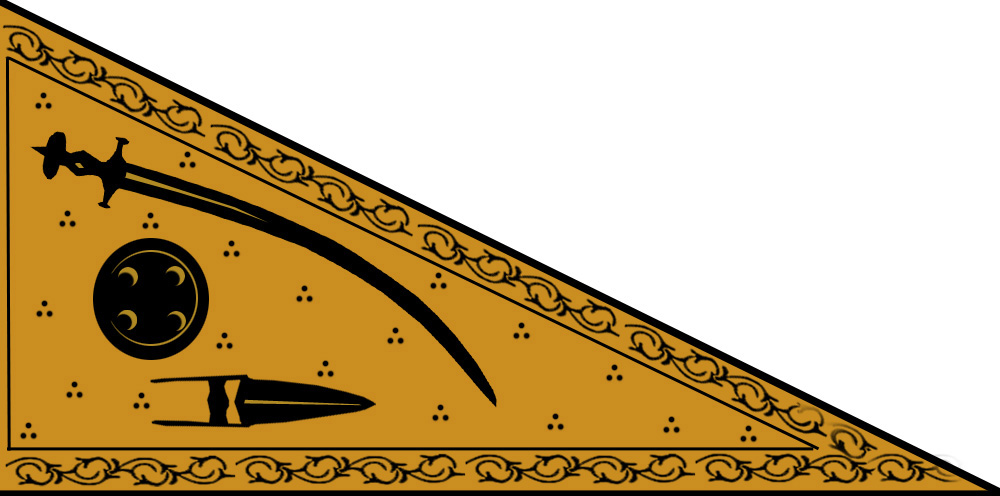History

Flag of Rupar
Rupar/Ruparnagar State was founded by Sardar Hari Singh who was a Virk Jat of Kaleki near Kasur(Pakistan) who was part of Dallewalia Misl. Sardar Hari Singh had taken possession, around 1763(After the Fall of Sirhind), of a large territory including Ropar, Sialba, Khizrabad and Kurali. In 1792, one year before he died, Hari Singh divided his possessions between his two surviving sons, Raja Charhat Singh and Sardar Deva Singh, the former getting Rupar and the latter Sialba. Bhup Singh was the son and successor of Raja Charhat Singh, who might have died during the former`s minority. This explains the reference to Deva Singh being the co ruler at Rupar in lists prepared in 1809 by LieutColonel D. Ochterlony and Lieutenant F.S. White of the East India Company. Rupar was under Maharaja Ranjit Singh in these list. It came under British protection as a result of the treaty of Amritsar (25 April 1809), which limited Ranjit Singh`s authority mainly to territories north of the River Sutlej.According to the historians, Raja Bhup Singh was the most notable ruler of Rupar and it was he who had fought the Anglo-Sikh War in 1845.Little is known about his life except that in 1808-09 he, along with Deva Singh, was in possession of Rupar and its adjacent districts including Khizrabad and Mianpur, a tract covering 115 villages with an estimated annual revenue of Rs 53,000.Raja Bhup Singh is remembered as a just ruler and as a pious Sikh who constructed Gurdwara Dehra Baba GurdittaJi at KIratpur and Gurdwara Gurugarh Sahib at Ropar. At the latter Gurdwara he had started a langar, or free kitchen, which remained open round the clock, for which reason, the shrine is still known as Gurdwara Sada Varat (where langar is open all the time to serve food to whoever comes). Raja Bhup Singh faught against britishers in the Second-Anglo Sikh War and supported Duleep Singh the infant son of Maharaja Ranjit Singh.Bhup Singh, was removed as prisoner and his whole state was confiscated in 1846 in consequence of his opposing the British during the first AngloSikh war.
Genealogy
- Sardar HARI SINGH, 1st Raja of Rupar 1763/1792, at an early age he became the leader of a jatha of 400 fighting men, with the support of a Sikh jatha at Gurudwara Damdama Sahib, in 1763, while he and his men were on a pilgrimage, they had a fight with the Pathan Nawab of Ropar, whom they defeated and took control of his state, including many villages of modern day, Kharar and Rupnagar tahsils, as well as Sialba Khizrabad, Siswan and Kurali in Rupnagar District, he also captured the fort of Khizrabad, a year prior to his death he divided the state between his two sons, married (by chaddadalna), Sardarni Rajan Kaur, and had issue, two surviving sons. He died 1793.
- Sardar Charat Singh (qv)
- Sardar Deva Singh, he was granted Sialba by his father in 1792, married and had issue.
- Sardar Narain Singh, married Bibi (name unknown) Kaur, daughter of Raja-i-Rajgan Maharaja Narendra Singh Mahendra Bahadur, Maharaja of Patiala, and had issue.(jagirdars of Sialba)
- Ch. Ram Singh of Wariam-Nangal
- Ch. Lakhan Singh of Rupwali
- Raja CHARAT SINGH, 2nd Raja of Ropar 1792/-?, he succeed his father to Ropar (worth 80,000Rs), married and had issue.
- Sardar Bhup Singh (qv)
- Raja BHUP SINGH, 3rd and last Raja of Rupar ? -/1846, he succeeded to his father's estate as a minor, in 1808-09 he, along with his uncle, Deva Singh, was in possession of Ropar and its adjacent districts including Khizrabad and Mianpur, a tract covering 115 villages with an estimated annual revenue of 53,000Rs, Ropar came under British protection on 8th November 1813 as a result of the treaty of Amritsar on 25th April 1809, which limited Maharaja Ranjit Singh's authority mainly to territories north of the River Sutlej, his territory was confiscated in 1846, by the British as a consequence of his opposition to them in the first Anglo-Sikh war, he was exiled to Saharanpur on 29th January 1847, he is remembered as a just ruler and as a pious Sikh who constructed the Gurdwara Dehra Baba Gurdittaji at Kiratpur and Gurdwara Gurugarh Sahib at Ropar, married and had issue.
- Bibiji (name unknown) Kaur, married Sardar Partab Singh Jalawalia of Alawalpur, born 1832, died 1894, and had issue.

